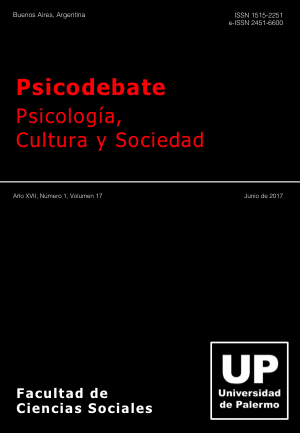The utility value of school contents. Perceptions of primary level students
Abstract
This article describes the development of a didactic experience with the aim of rescuing the utility value of school content and knows the perception of students who participated in the proposed instructional design. The research was conducted with students from 6th grade of primary education, with an average age of 11 years. Questionnaires and semi-structured interviews were used for data collection. The results showed that the proposal was perceived as positive, as long as you rescue the academic work carried out as an instance that facilitates the understand of the link between what is taught in school and everyday life. The findings emphasize the importance of the found to think about teaching and learning and the settings of educational contexts that are committed to the transfer of knowledge and skill into every life.
Downloads
References
Csikszentmihalyi, M. (1998). Creatividad. El fluir y la psicología del descubrimiento y la invención. Barcelona: Paidós.
Darr, C. (2012). Measuring student engagement: the development of a scale for formative use. En S. Christenson, A. Reschly, & C. Wylie (Eds.), Handbook Research on Student Engagement (pp. 707-724). Minneapolis, MN: Springer. https://doi.org/10.1007/978-1-4614-2018-7_34
Fredriscks, J. A., Blumenfeld, P. C., & Paris, A. H. (2004). School engagement: Potencial of the concept state of the evidence. Review of Educational Research, 74(1), 59-109. https://doi.org/10.3102/00346543074001059
Furman, M. (2015). Preguntas para pensar. Conferencia TEDxRíodelaPlataED. Recuperado de http://www.tedxriodelaplata.org/videos/preguntas-para-pensar
Gardner, H. (1983). Frames of Mind, The Theory of Multiple Intelligences. New York: Basic Book.
Gardner, H. (2003). Inteligencias múltiples. La teoría en la práctica. Buenos Aires: Paidós.
Harris, L. (2010). Delivering, Modifying or Collaborating? Examining Three Teacher Conceptions of How to Facilitate Student Engagement. Teachers and Teaching, 16(1),131-151. https://doi.org/10.1080/13540600903478037
Hipkins, R. (2012). The engaging nature of teaching for competency development. En S. Christenson, A. Reschly, & C. Wylie (Eds.), Handbook Research on Student Engagement (pp. 441-456). Minneapolis, MN: Springer. https://doi.org/10.1007/978-1-4614-2018-7_21
Hospel, V. & Galand, B. (2016). Are both classroom autonomy support and structure equally important for students’ engagement? A multilevel analysis. Learning and Instruction, 41, 1-10. https://doi.org/10.1016/j. learninstruc.2015.09.001
Krajcik, J. & Blumenfeld, P. (2006). Project-Based Learning. En K. Sawyer, (Ed.) The Cambridge Handbook of the learning Sciences (pp. 317-333). New York: Cambridge University Press.
Lam, S. F., Wong, B., Yang, H., & Liu, Y. (2012). Understanding Student Engagement with a contextual Model. En S. Christenson, A. Reschly, & C. Wylie (Eds.) Handbook Research on Student Engagement (pp. 403-420). Minneapolis, MN: Springer. https://doi.org/10.1007/978-1-4614-2018-7_19
Marzal, M., Díaz, M. & Calzada, J. (2012). Un modelo y un método para la transformación de la biblioteca escolar en centro de recursos de enseñanza y aprendizaje. TransInformação, 24(3), 165-178. https://doi.org/10.1590/S0103- 37862012000300002
Mitchell, I. & Carbone, A. (2011). A typology of task characteristics and their effects on student engagement, International Journal of Educational Research, 50(5-6): 257-270. https://doi.org/10.1016/j.ijer.2011.05.001
Perkins, D. (2010). El aprendizaje pleno. Principios de la enseñanza para transformar la educación. Buenos Aires: Paidós.
Reschly, A. & Christenson, S. (2012). Jingle, Jangle, and Conceptual Haziness: evolutions and future directions of the engagement construct. En S. Christenson, A. Reschly, & C. Wylie (Eds.). Handbook Research on Student Engagement (pp. 3-20). Minneapolis, MN: Springer. https://doi. org/10.1007/978-1-4614-2018-7_1
Rigo, D. (2013). Compromiso hacia las tareas académicas. Diseños instructivos e inteligencias múltiples. Ikastorratza, e-Revista Didáctica, 10.
Rinaudo, C. & Donolo, D. (2010). Estudios de diseño. Una alternativa promisoria en la investigación educativa. RED – Revista de Educación a Distancia, 22.
Rinaudo, C. & Donolo, D. (2013). Inteligencia-Creatividad (y la escuela). En D. Donolo & R. Elisondo (Eds.), Estudio de creatividad Las travesías de Alfonsina, de Astor, de Julios y de Marías (pp. 17-46). España: Sociedad Latina de Comunicación Social.
Rigo, D. & Donolo, D. (2014a). Entre pupitres y pizarrones. Retos en educación primaria: el aprendizaje con compromiso. Educatio Siglo XXI, 32(2), 59-80. https://doi.org/10.6018/j/202161
Rigo, D. & Donolo, D. (2014b, noviembre). Factores clave en la promoción del compromiso en educación primaria. Un estudio sobre tasks, teachers and students. Trabajo presentado en el Congreso Iberoamericano de Ciencia, Tecnología, innovación y Educación, Buenos Aires, Argentina.
Rigo, D. & Donolo, D. (2016). La evaluación...más de lo mismo. Desafiando formatos y modalidades sin libreto. Panorama. Revista de Ciencias Sociales, 10(19), 5-23.
Ritchhart, R. (2002). Intellectual Character. What it is, Why it matters and How to get it. San Francisco, CA: Jossey-Bass.
Ritchhart, R. (2012). The Purpose and Promise of Schools. En R. Ritchhart (Ed.). Creating Cultures of Thinking: The 8 Forces We Must Master to Truly Transform Our Schools (pp. 13-36). New York: Wiley
Ritchhart, R., Church, M. & Morrison, K. (2014). Hacer visible el pensamiento. Cómo promover el compromiso, la comprensión y la autonomía de los estudiantes. Buenos Aires: Paidós.
Ritchhart, R. & Perkins, D. (2000). Life in the Mindful Classroom: Nurturing the Disposition of Mindfulness. Journal of Social Issues, 56(1), 27–47. https://doi. org/10.1111/0022-4537.00150
Shernoff, D. (2013). Optimal learning. Environment to promote student engagement. New York: Springer. https://doi.org/10.1007/978-1-4614-7089-2
UNESCO (2011). Alfabetización mediática e informacional. Recuperado de http://unesdoc.unesco.org/images/0021/002160/216099S.pdf
Wales, J. (2015, 23 de octubre). ‘El nuevo analfabetismo no es no saber cosas, es no saber usar la información’. El Mundo, Sección Cultura. Recuperado de http://www.elmundo.es/cultura/2015/10/23/5629fed346163f 79308b45c0.html
Authors who publish with this journal agree to grant Psicodebate copyright and right of publication and accept the work being licensed under a Creative Commons Attribution License that allows others to share the work with an acknowledgement of the authors and Psicodebate.

















